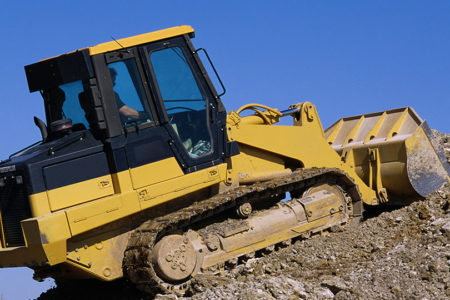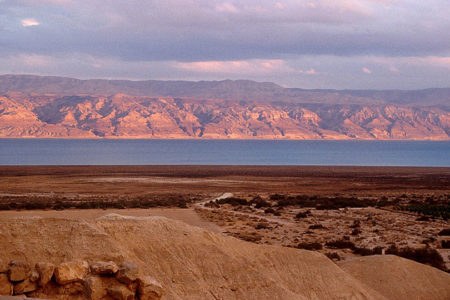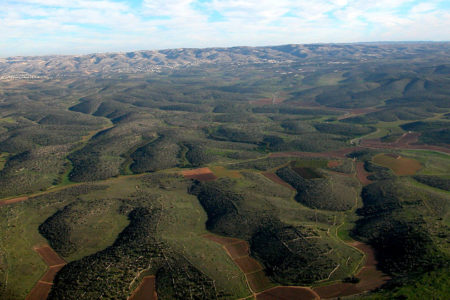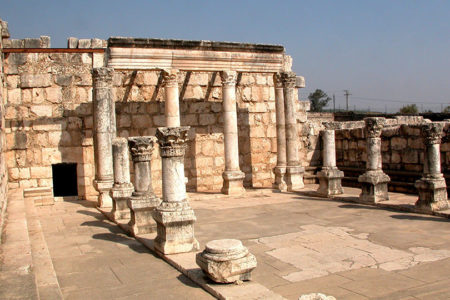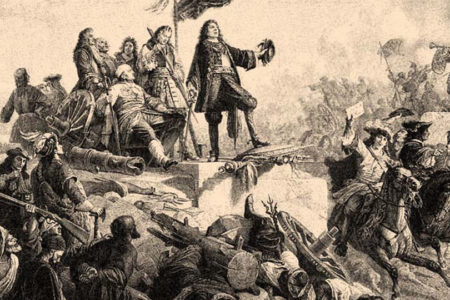Israel’s Salvation
Zechariah 12:1–14
Will Israel survive the hatred and unceasing persecution that has plagued it for centuries? Although it faces a cauldron of unrelenting conflict, Israel will survive the world’s attempts to annihilate it.
The last three chapters of Zechariah form a single prophecy that reveals the struggle Israel will face to stay alive. This prophecy describes a series of events that will culminate with the Messiah’s return, Israel’s salvation, and the establishment of His Kingdom on Earth.
The prophet’s message is described as the “burden [oracle] of the word of the Lᴏʀᴅ against [concerning] Israel” (12:1). The word burden refers to something heavy, a load to be lifted. In context, the “burden” is a weighty message from the Lord concerning (1) a yet future siege against Jerusalem and (2) the eventual salvation of Israel.
Before unveiling the prophecy in chapter 12, Zechariah reminds us that no force in the universe can deter or divert God’s plan and purpose for Israel. This assurance comes from “the Lᴏʀᴅ, who stretches out the heavens, lays the foundation of the earth, and forms the spirit of man within him” (v. 1).
God did not create the universe like a clock that was wound and left to run on its own. To the contrary, His omniscience and omnipotence continue to maintain the movement of everything in the universe, including creating and guiding man’s spirit within him. Thus God is actively involved in bringing to consummation His planned destiny for Jerusalem and the Jewish people.
The setting for the fulfillment of these prophecies is in that day, a phrase used 16 times in the last three chapters. It refers to the Day of the Lord, a time of God’s wrath and blessing that extends from the beginning of the future, seven-year Tribulation to the end of the Millennial Kingdom.
The Siege of Jerusalem
Any nation that invades Jerusalem during the Day of the Lord will suffer severe judgment:
Behold, I will make Jerusalem a cup of drunkenness to all the surrounding peoples, when they lay siege against Judah and Jerusalem. And it shall happen in that day that I will make Jerusalem a very heavy stone for all peoples; all who would heave it away will surely be cut in pieces, though all nations of the earth are gathered against it (Zech. 12:2–3).
God is saying that the nations that attack Jerusalem will drink the full cup of His wrath. Every invading army will become disoriented, like an intoxicated person who reels under the influence of alcohol. In their stupefied conditions, the armies will stumble, fall, and become immobilized in battle.
Likewise, Jerusalem is compared to “a very heavy [burdensome] stone” that weighs too much to “heave…away.” And it will “cut in pieces [lacerate]” anyone who tries (v. 3). In other words, those who attack Jerusalem will rupture, injure, and lacerate themselves. In spite of this awesome, detailed warning, “all nations of the earth” will come against Jerusalem in the Day of the Lord (v. 3).
As the battle progresses, said the Lord, “I will strike every horse with confusion, and its rider with madness; I will open My eyes on the house of Judah, and will strike every horse of the peoples with blindness” (v. 4). Thus God will smite the horses with “confusion” (panic) and “blindness” and the riders with “madness” (consternation). Because of its sin, God brought madness, blindness, and confusion of heart on Israel (Dt. 28:28; cf. 1–68). In like manner, God will use the same type of confusion to destroy Israel’s enemies. While the armies are being destroyed, the Lord’s “eyes” will be on the house of Judah, providing divine protection for the nation. (See Zechariah 3:9; 4:10; 9:8.)
The Strength of Judah
At the appointed time, the inhabitants of Jerusalem and Judah will turn to the Lord for strength: “And the governors [leaders] of Judah shall say in their heart, ‘The inhabitants of Jerusalem are my strength in the Lᴏʀᴅ of hosts, their God’” (v. 5). That is, the inhabitants of Jerusalem will recognize “the Lᴏʀᴅ of hosts” as their strength to sustain them in the conflict. In the process, leaders and citizens alike will be empowered and fortified to resist and conquer their foes. Judah will realize that God alone secured its victory.
Zechariah used two similes in describing the strength given to the Jewish people. They will be “like a firepan [firepot] in the woodpile, and like a fiery torch in the sheaves; they shall devour all the surrounding peoples on the right hand and on the left” (v. 6). Jerusalem’s attackers will be swiftly consumed, like kindling wood ignited by a firepot full of hot coals or a pile of bound sheaves that is quickly incinerated by a fiery torch. In the midst of the battle, Jerusalem’s inhabitants will not flee but will remain in their “own place—Jerusalem” (v. 6).
All Judah will survive the battle: “The Lᴏʀᴅ will save the tents of Judah first, so that the glory of the house of David and the glory of the inhabitants of Jerusalem shall not become greater than that of Judah” (v. 7). Those living in the rural areas of Jerusalem are delivered first because of their vulnerability, but all in Judah shall share equally in the glorious victory.
Jewish people will be given divine power that will shield and strengthen them during the conflict. The “feeble among them…shall be like David.” David was Israel’s great warrior-king. He was unbeatable in battle. Furthermore, “The house of David shall be like God, like the Angel of the Lᴏʀᴅ before them” (v. 8). Israel will be endowed with great power, “like the Angel of the Lᴏʀᴅ” (the preincarnate Christ), who is the invincible Commander of the Lord’s army. It was He who strengthened Israel to be victorious over its enemies (cf. Ex. 23:20; 32:34; 33:2; Josh. 5:13–15).
In that day, the Lord will “seek to destroy all the nations that come against Jerusalem” (v. 9). The word seek does not cast doubt on God’s ability to destroy Jerusalem’s enemies, nor does it question the success of His mission. To the contrary, seek means the Lord will give His undivided attention to seeking out and destroying any nation that will come against Jerusalem.
The Salvation of Jerusalem
At the Messiah’s Second Advent, God will bring salvation to a remnant in Jerusalem:
And I will pour on the house of David and on the inhabitants of Jerusalem the Spirit of grace and supplication; then they will look on Me whom they pierced. Yes, they will mourn for Him as one mourns for his only son, and grieve for Him as one grieves for a firstborn (v. 10).
The word I refers to the Lord who is doing the speaking. He is the Creator of the universe, who pours out the “Spirit of grace” on Jerusalem by means of the Holy Spirit. Grace and supplication sum up the ministry of the Holy Spirit as He brings salvation to the inhabitants of Jerusalem (cf. Ezek. 37:14; 39:29; Joel 2:28–29). It is the Holy Spirit who bestows God’s grace on a person or a nation.
In that day (the end-times climax of the seven-year Tribulation), the veil that has for centuries covered the eyes of Jewish people, with the exception of the believing remnant, will be lifted. Then, said the Lord, “They will look on Me whom they pierced” (v. 10). The word they refers to Jewish people upon whom the “Spirit of grace and supplication” is poured. The word Me refers to God, the One who is speaking. In context, this speaker is the divine Messiah.
For several reasons, Jewish scholars have been perplexed over this verse. First, the text says, “They will look upon Me whom they pierced.” The word pierced (Hebrew, daqar) means to be “thrust through,” normally by a sword or spear, usually resulting in a disgraceful and violent death. Since God is speaking, how could God be pierced, resulting in His death? Second, if God is pierced, how could Jewish people look to a dead God for salvation? The answer is found in Jesus the Messiah. He is not only divine but took on flesh and became a man. As a man, Jesus willingly tasted death by crucifixion to redeem sinful humanity; but three days later, He was resurrected.
Partial fulfillment of this text took place at Jesus’ crucifixion. Roman soldiers hammered nails through His hands and feet and thrust a spear into His side. The historical event was clearly recorded in all four New Testament Gospels. The apostle John saw Jesus’ crucifixion as a fulfillment of this text (Jn. 19:37). Although a Jewish mob called for Jesus to be crucified, Roman soldiers actually did the deed. Scripture clearly reveals that all humanity is responsible for Jesus’ crucifixion (Acts 4:27–28).
When the Holy Spirit is poured out on Jerusalem, Jewish people will “look on” (look unto) their Messiah with trust and hope for salvation. This will result in individuals greatly mourning over their sin. Each will recognize that the “Me” in verse 10 refers to his or her Savior and Lord, Jesus the promised Messiah, who was rejected and pierced at His First Advent.
Every stratum of Israel’s society will publicly and privately mourn over its sin. Zechariah illustrated the mourning in three ways. First, people “will mourn for Him as one mourns for his only son, and grieve for Him as one grieves for a firstborn” son (v. 10). The death of an only or firstborn son produces profound grief and elicits one of the deepest types of mourning in a Jewish family. Such mourning became a proverb for the intensity of Israel’s grief during times of severe tragedy. (See Jeremiah 6:26 and Amos 8:10.)
Second, Zechariah compared this time of mourning to that “at Hadad Rimmon in the plain of Megiddo” (v. 11). Although Hadad Rimmon’s location is not identified in Scripture, most commentators consider it modern Runmaneh, a village near the ancient city of Megiddo. It was at Hadad Rimmon that righteous King Josiah was mortally wounded, whereupon Judah greatly mourned his death (2 Chr. 35:23–25). Zechariah compared Judah’s mourning for Josiah with the intense mourning the nation will experience when it sees its rejected and pierced Messiah at His Second Coming.
Third, the remaining verses in this chapter express how extensive and exclusive the Jewish repentance will be when, without exception, “every [Jewish] family” will mourn over its sin (v. 12). Four men are mentioned as representing various groups of mourners: David, Nathan, Levi, and Shimei (vv. 12–13). David represents the royal family; Nathan represents either the royal family or the prophetic line; and Levi and Shimei represent the priestly family. In that day, all individuals of “all the families that remain”—that survive the Great Tribulation—will mourn privately over their sin.
Whether Jewish or Gentile, one need not wait to repent over sin. Redemption and reconciliation are possible this very moment. And the one who makes this commitment will find peace and purpose and will experience eternal life to come.

